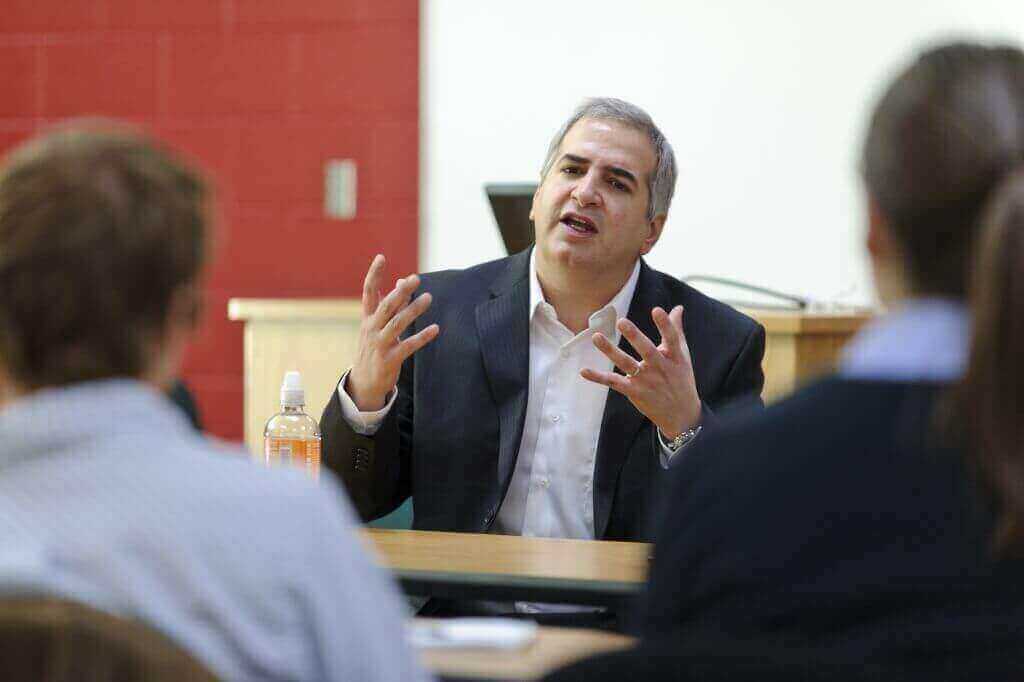Anthony Shadid Journalism Ethics Award goes to Associated Press team
The Associated Press has won the 2016 Anthony Shadid Award for Journalism Ethics for reporting that resulted in the freeing of 2,000 slave laborers used by the fishing industry in Southeast Asia.
The award will be presented at the annual conference of the University of Wisconsin–Madison Center for Journalism Ethics on April 29 in Madison by Nada Shadid, Anthony Shadid’s widow.
The center bestows the award annually in honor of Shadid, a Pulitzer Prize-winning UW–Madison journalism alumnus and foreign reporter for the Washington Post and The New York Times. He died in 2012 from health complications while reporting in Syria.

Anthony Shadid (center) speaks to a group of journalism students in a Vilas Hall classroom in December 2010. Photo: Bryce Richter
While investigating an Asian “slave island” that provides fish for the American market, AP reporters Martha Mendoza, Margie Mason, Robin McDowell and Esther Htusan realized that any slave who talked with them faced possible execution. The reporters and their editors decided to rescue their sources from the island before publishing the explosive story.
After accepting the award, Mendoza and McDowell will participate in a panel discussion focusing on how they wrestled with the ethical problems they confronted.
“There is nothing unusual about journalists protecting their sources from discovery,” Jack Mitchell, chair of the judging committee, says. “But journalists usually minimize involvement beyond that. The AP defied convention by taking responsibility for the welfare and safety of the slaves, who were willing to face death to tell their stories. The journalists got the men to safety before publishing the stories.”
The AP team was chosen for the award over four other finalists who also demonstrated exceptional commitment to ethical journalism last year. They were:
- A team of journalists from McClatchy newspapers who took care to preserve the medical privacy of victims while exposing the human toll of America’s Cold War-era nuclear energy programs.
- ProPublica and NPR, who took similar care in protecting the privacy and dignity of sick and injured employees as their reporters revealed how states across the country are curtailing workers’ compensation programs.
- Reporters from the Columbus Dispatch, who also dealt with privacy issues in reporting on suicides as a public health issue, while considering the probability that reporting on suicides might lead to copycat attempts.
- Milwaukee Journal Sentinel reporter Gina Barton, who faced an array of ethical challenges reopening a 40-year-old unsolved murder case that, fairly or unfairly, might reflect badly on individuals and institutions.
The Center for Journalism Ethics will honor the AP team at its conference, which focuses on “Race, Ethnicity and Journalism Ethics” this year. The daylong event will begin at 8:30 a.m. at Union South on the UW–Madison campus. It will include panels devoted to ethical issues in representations of race, covering education and criminal justice, and a discussion of how journalism can improve such coverage. Award-winning New York Times Magazine reporter Nikole Hannah-Jones will deliver the keynote address.
Online registration is now open for the ethics conference.
Tags: ethics, journalism



